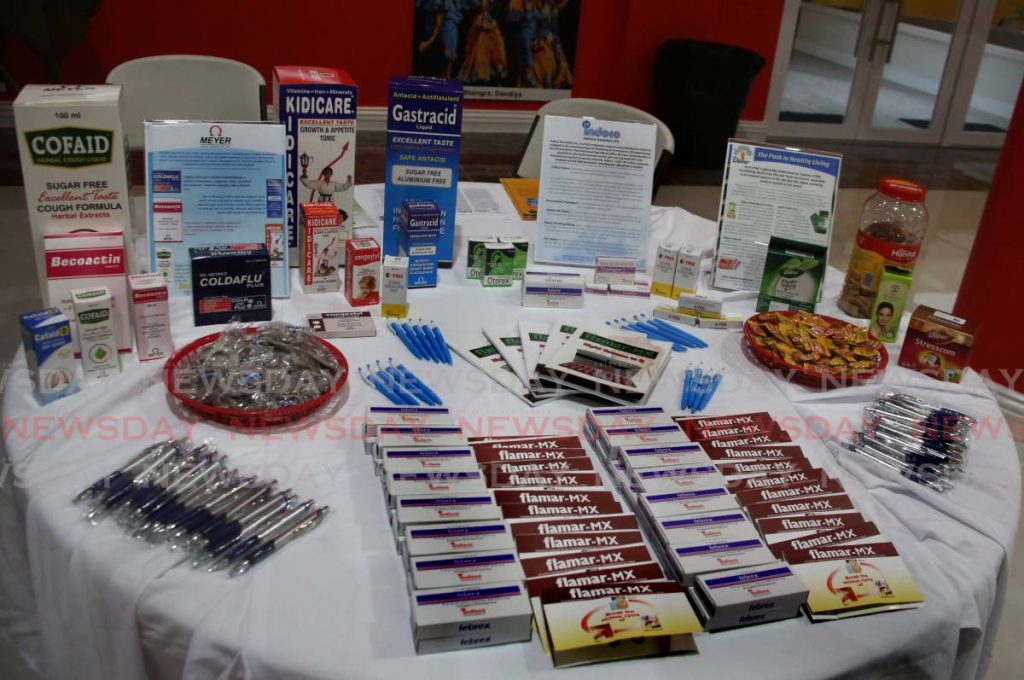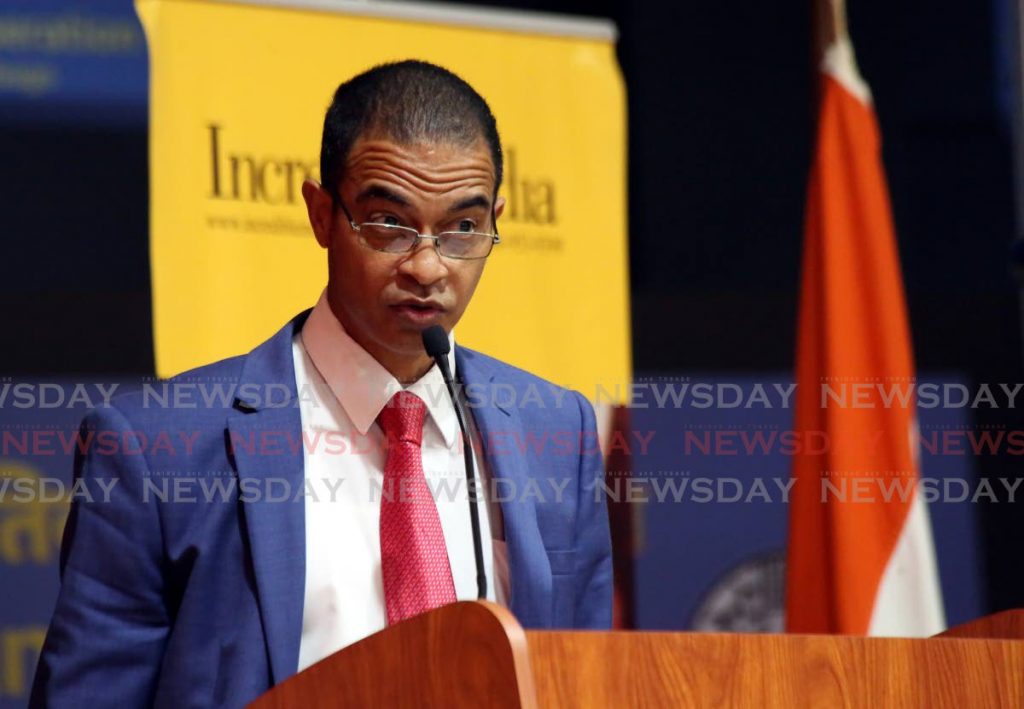Pharmacy board objects to Agostini's merger: Drug prices will spike

The Pharmacy Board of TT has reached out to the TT Fair Trade Commission (TTFTC) to discuss pharmacists concerns about a possible monopoly in the industry with the ongoing merger of three leading pharmaceutical firms.
The board's president Andrew Rahaman disclosed this to Newsday on Saturday and said it is waiting on feedback from the commission.
Rahaman raised concerns this week about the Agostini Group's acquisition of two companies – Oscar Francois Ltd and Intersol Ltd – and the effects the deal would have on the industry was very concerning to the board.
He did so again on Friday evening, in an address at a function hosted by the Indian High Commission, at the Mahatma Gandhi Institute for Cultural Co-operation, Mt Hope on the theme, A Talk on India’s Pharmaceutical Sector.
Rahaman said Indian pharmaceutical companies were poised to play an important role with the anticipated monopolisation of medicine supplies owing to the merger.
“The Indian pharmaceutical companies are well poised to help eradicate and eliminate the ill-effects of not only pricing that a monopoly can create but also when drugs become uneconomical to produce. We will have to depend on the generic which are quite efficient and cheaper.”
Agostini's acquisition of the two pharmaceutical firms, through its subsidiary Smith Robertson and Co Ltd, raised an alarm of a monopoly on the distribution of covid19 vaccines, and other drugs. The three companies are distributors for vaccine manufacturers AstraZeneca, Pfizer and Johnson and Johnson. The Ministry of Trade and Industry, noting the concerns, assured the provision of vaccines would be a government to government at this time. However, Agostini's has said it looked forward to when the vaccines become commercially available. Agostini Group chairman Christian Mouttet did not return calls for a comment this week.
In a media release on Friday, the TTFTC said it was aware of the concerns but that following a four-month long investigation, the commission was satisfied the merger would not adversely affect competition or be detrimental to consumers or to the economy.
"The commission further assures the public that it continues to monitor the local pharmaceutical industry in order to detect and treat with anti-competitive activities such as unfair selling prices, predatory pricing, discriminatory behaviour and abusive increase of prices of essential pharmaceutical products."
Apart from having Indian pharmaceutical companies fill the gaps that can be made by a possible monopoly, Rahaman also raised on Friday the issue of training locals to identify counterfeit drugs.
“We have an issue with counterfeit drugs and while we do have a public lab, we don’t have the capabilities to test drugs.”

He said there was a desire within the industry to further the relationship between TT and India, in this regard, beginning with experts training many out-of-work chemists locally to identify fake drugs and for TT to have its own testing facilities.
Indian High Commissioner Arun Kumar Sahu, in his remarks, called on those gathered to look to India as their source of pharmaceuticals not only because of the affordability but the efficacy.
Various speakers stressed that India is the largest provider of generic drugs globally with the pharmaceutical sector supplying over 50 per cent of the world’s demand for various vaccines, including the AstraZeneca vaccine. India also provides 40 per cent of generic brands to the United States and 25 per cent of the medicine supply in the United Kingdom. India is the third largest country in pharmaceutical production and the tenth richest in exporting pharmaceuticals.
Sahu said an agreement among Japan, Australia, the US and India will see an increase in covid19 vaccine production “to ensure accessibility of safe covid19 vaccines.”
He stayed away from commenting on the supply of vaccines to TT when approached by the media.
However, Opposition MP Dr Rai Ragbir, a guest speaker, said he was “taken aback” when that TT had not received any of 500,000 free vaccines India donated to Caricom.
“While the world, and the region moves forward with engaging, negotiating, and implementing a strategic plan of vaccinating its population, this country waits on an impending arrangement, with no clear, definitive date in sight and the question is how and why?”
In February, Barbados donated 2,000 doses to TT from a shipment of 100,000 vaccines it received from India.
Opposition Leader Kamla Persad-Bissessar last month wrote to India Prime Minister Narendra Modi requesting a donation of vaccines and was chastised by Health Minister Terrence Deyalsingh and Foreign Affairs Minister Dr Amery Browne for doing so. However, Browne said up to Friday there was no response from the Indian government to TT's requests for a donation and to buy the vaccines.
He said Sahu had indicated that he not received any reply from his government and promised to continue liaising with the administration.
TT is expected to receive a batch of 33,000 doses at the end of March through the Covax facility. The additional 77,000 of the 108,000 secured through the Covax facility should arrive between the end of April and early May.

Comments
"Pharmacy board objects to Agostini’s merger: Drug prices will spike"